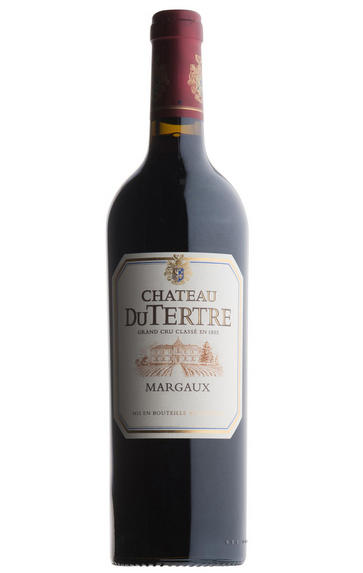
2011 Château du Tertre, Margaux, Bordeaux
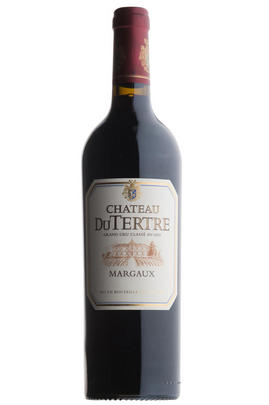
Critics reviews
This is firm and tight with blueberry, wet earth and spice. Medium to full body and a medium finish. Needs to open.
James Suckling, jamessuckling.com (Nov 2015)
An estate that has eyes on it right now as it changes hands from the Albada to the Helfrich family. At this point winemaker Frederic Ardouin had been there for three years, and has made a wine with a supple quality to the tannins, and plenty of juice running through it. Very much ready to enjoy and will give a ton of pleasure. Easy to recommend. 10% Petit Verdot completes the blend. 30% new oak.
Jane Anson, Decanter.com (Feb 2021)
About this WINE
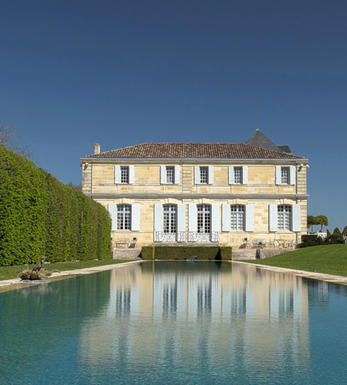
Chateau du Tertre
Château du Tertre in Margaux was in the 1990s a prime contender for the prize of the least-known Classed Growth wine in the Médoc. It was bought by the Dutch businessman, Eric Albada Jelgersma, in 1997 with a mission to revitalise the estate's fortunes. Château du Tertre's revival was first signalled with its stunning offering from the 2000 vintage and this has continued with equally strong offerings from 2005 and 2008 and 2009.
Château du Tertre can trace its history back to the 12th century, has 50 hectares of vineyards which neighbour those of Cantenac-Brown and Brane-Cantenac to the north and Giscours to the east.
It is situated on one of the highest hills in the Margaux commune which is where its name comes from (Tertre means knoll). The wines is typically a blend of 45% Cabernet Sauvignon, 45% Merlot and 10% Cabernet Franc - Previously the wine's ageing capacity was suspect but examples from recent vintages will age easily for 15 or more years.
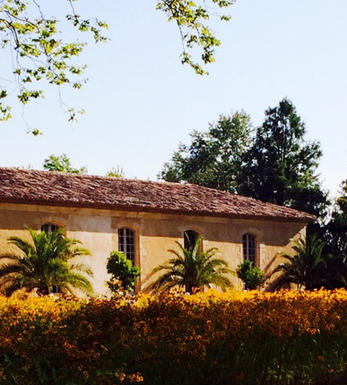
Margaux
If Pauillac can be seen as the bastion of ‘traditional’ Red Bordeaux, then Margaux represents its other facet in producing wines that are among Bordeaux’s most sensual and alluring. It is the largest commune in the Médoc, encompassing the communes of Cantenac, Soussans, Arsac and Labaude, in addition to Margaux itself. Located in the centre of the Haut-Médoc, Margaux is the closest of the important communes to the city of Bordeaux.
The soils in Margaux are the lightest and most gravelly of the Médoc, with some also containing a high percentage of sand. Vineyards located in Cantenac and Margaux make up the core of the appelation with the best vineyard sites being located on well-drained slopes, whose lighter soils give Margaux its deft touch and silky perfumes. Further away from the water, there is a greater clay content and the wines are less dramatically perfumed.
Margaux is the most diffuse of all the Médoc appelations with a reputation for scaling the heights with irreproachable wines such as Ch. Margaux and Ch. Palmer, but also plumbing the depths, with too many other châteaux not fulfilling their potential. There has been an upward shift in recent years, but the appellation cannot yet boast the reliability of St Julien. However, the finest Margaux are exquisitely perfumed and models of refinement and subtlety which have few parallels in Bordeaux.
Recommended Châteaux: Ch. Margaux, Ch. Palmer, Ch. Brane-Cantenac, Ch. Rauzan-Ségla , Ch. Dufort-Vivens, Ch. Ferrière, Ch. du Tertre, Ch. Giscours, Ch. d'Angludet.
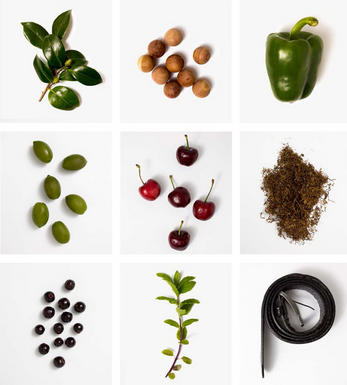
Cabernet Sauvignon Blend
Cabernet Sauvignon lends itself particularly well in blends with Merlot. This is actually the archetypal Bordeaux blend, though in different proportions in the sub-regions and sometimes topped up with Cabernet Franc, Malbec, and Petit Verdot.
In the Médoc and Graves the percentage of Cabernet Sauvignon in the blend can range from 95% (Mouton-Rothschild) to as low as 40%. It is particularly suited to the dry, warm, free- draining, gravel-rich soils and is responsible for the redolent cassis characteristics as well as the depth of colour, tannic structure and pronounced acidity of Médoc wines. However 100% Cabernet Sauvignon wines can be slightly hollow-tasting in the middle palate and Merlot with its generous, fleshy fruit flavours acts as a perfect foil by filling in this cavity.
In St-Emilion and Pomerol, the blends are Merlot dominated as Cabernet Sauvignon can struggle to ripen there - when it is included, it adds structure and body to the wine. Sassicaia is the most famous Bordeaux blend in Italy and has spawned many imitations, whereby the blend is now firmly established in the New World and particularly in California and Australia.


Buying options
Add to wishlist
Description
An estate that has eyes on it right now as it changes hands from the Albada to the Helfrich family. At this point winemaker Frederic Ardouin had been there for three years, and has made a wine with a supple quality to the tannins, and plenty of juice running through it. Very much ready to enjoy and will give a ton of pleasure. Easy to recommend. 10% Petit Verdot completes the blend. 30% new oak.
Drink 2021 - 2036
Jane Anson, Decanter.com (Feb 2021)
wine at a glance
Delivery and quality guarantee